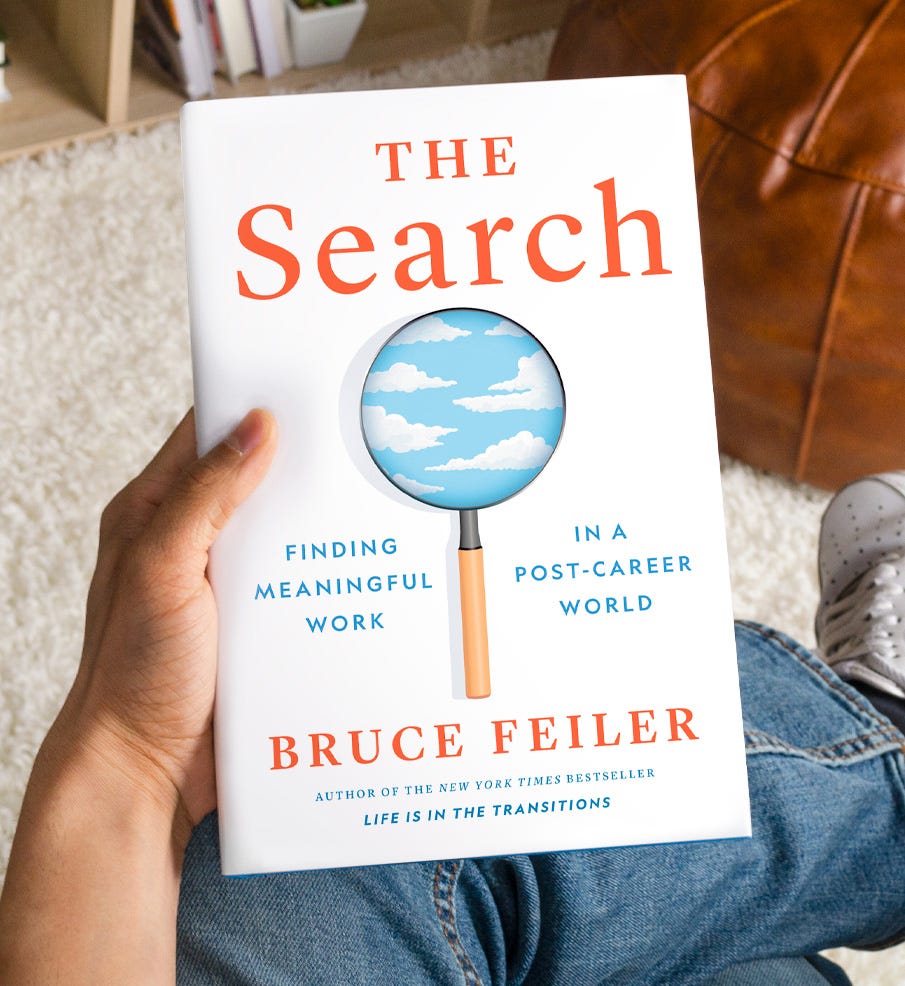Why Parents Cry at Graduations
3 Reasons Parents Weep at Commencements (And 2 Why They Don't)
Thanks for reading The Nonlinear Life, a reader-supported newsletter about navigating life's ups and downs. If you're new around here, learn about me, or check out our introductory post. And if you enjoyed this article, please subscribe or share with a friend.
___
In 1905, Yale invited the British composer Edward Elgar to receive an honorary doctorate from the university. In Elgar’s honor, the New Haven Symphony Orchestra played his recently written march, Land of Hope and Glory, at the ceremony.
The work was so stirring that other universities, including Princeton, Chicago, and Columbia, quickly followed suit. Within no time, nearly every educational institution in the country was playing the work.
The actual title of the march was soon lost to history, replaced by the name of the larger piece of which it was a part. That piece takes its name from Act III, Scene 3, from Shakespeare’s Othello:
Farewell the neighing steed and the shrill trump,
The spirit-stirring drum, th'ear-piercing fife.
The royal banner, and all quality,
Pride, pomp, and circumstance of glorious war!
Pomp and Circumstance is the rare piece of music the elicits both pride and melancholy, standing up straight and buckling a bit at the knees. In that way, it’s the perfect embodiment of the swell of conflicting emotions that accompany a graduation.
My daughters graduated from high school earlier this month. The girls I used to hold in my hands walked arm-in-arm down the aisle of a local church, listened to some classmates play Jimi Hendrix and James Taylor (it’s an artsy school), enjoyed some admirably thoughtful remarks, and claimed their fake diplomas, since their school has learned from experience that the graduates will misplace whatever they receive that night and would be better off receiving their real diplomas a few weeks later.
I cried. Not the blubbering, Dad, you’re an embarrassment kind of cry. Not even a particularly long or drawn-out trail of tears. But moisture. And glistening. And a glaze of confused emotions.
But why?
In an attempt to keep up with the young, I did what I gather all the kids in college are doing these days: I asked ChatGPT. “In the style of Bruce Feiler, please tell me why parents cry at graduations?” Here’s what it said:
Title: The Tears of Triumph: Unraveling the Mystery of Parents' Tears at Graduations
Introduction: Graduation, a moment of triumph and celebration, marks the culmination of years of hard work, dedication, and sacrifice. As the familiar strains of “Pomp and Circumstance” fill the air, an inexplicable phenomenon occurs – parents, often overwhelmed with emotions, find themselves shedding tears of joy. In this essay, inspired by the insights of Bruce Feiler, we embark on a heartfelt exploration of why parents cry at graduations.
Wait? It even came up with Pomp and Circumstance right after I did! Maybe I’ll be one of those people that AI puts out of business. Though on the bright side, I’m relieved to report that the nameless, faceless program got the punctuation wrong, as titles of long musical compositions should be italicized, not put in quotation marks.
But GPT4 is not alone in its confusion. Even professional psychologists have not come up with good reasons why people cry at happy events. The topic has received “relatively little interest from investigators,” report Ad Vingerhots of Tiburg University and Lauren Bylsma of the University of Pittsburgh. They write:
Our claim is that the study of crying, particularly its adaptive functions and developmental aspects, will help to provide more insight into, among others, the development of empathy and morality and, ultimately, human nature.
OK, but what are those reasons? With ChatGPT and GoogleScholar having failed me, I did what people used to do before computers. I asked actual people.
To be fair, some people said they didn’t cry.
“I did not cry when my youngest graduated high school because his father and I had divorced some years earlier, and I was selling the house, moving, and starting the next phase of my life. It was time for us all to go.”
“When my children graduate, I see it as a celebration of their achievements and of their becoming who they are. It’s about honoring the journey. No crying.”
But many people said they did. Here are the three reasons they shared:
1. IT WAS HARD!
“My son was in a motorcycle accident at 22, leaving him a paraplegic. He just graduated college at age 34. He chose to pursue his passion and thus chose life rather than death. I was bawling my eyes out because I know how hard he works every day and can now even serve others.”
“I cried at all of my kids’ graduations because I was overwhelmed with so many emotions. But I really cried the hardest when my daughter graduated. When she was young, she was diagnosed with autism and because she was nonverbal at the time, the doctor told us to institutionalize her. We decided he was an idiot and utilized every resource and biomedical intervention we could for her for years. Now she is a schoolteacher and adulting like her siblings. I cried because of what she had to overcome to be who she is. And of course, thanked the Lord for his grace. Phew!”
2. YOU’RE FIRED!
“For me seeing my children graduate is a phase that I now put behind me. I am no longer needed in the function as tutor and supporter or all other functions I have had during their school years. Of course they will still need me but they are taking yet another step in becoming independent of me. It is also a relief. I managed to do everything that I needed to do to get them to this point. And now I need to figure out what to do with the rest of my life.”
“We certainly tear up at the accomplishments of those years, but I think the most tearful emotion is the blatantly visual reminder of our own aging and the loss of our child, since the adult they are now will (hopefully) go on to do great things on their own.”
“Tears of joy and relief for making it to this point in life for our son and as parents— remembering all the tough and precious moments along the way. Also tears of gratitude for all those who helped him and us along the way. But also tears of sadness. As parents, we invest so much in our children. Even as we celebrate their accomplishments, I think it is a normal human emotion to also acknowledge the personal loss of not having that person in the house every day, knowing we likely will never have that much concentrated time together with him again.”
3. WE DID GOOD!
“My husband and I did not attend college, so this was our first experience. There is an overwhelming sense of accomplishment and unlimited promise in the same breath. I am a first-generation American. My dad came here at 16 with a cardboard suitcase and a phone number to call. He died before he could see his dream fulfilled in his first grandchild on an ivy league campus. Lump in throat now as I recall the experience.”
“At my children's high school, the teachers line up on both sides of the aisle and shake hands with or hug the graduates as they walk in. I bawled when I witnessed this with my oldest. The first two teachers to embrace her were also people we'd known for years, which made it even more poignant. I guess it had to do with gratitude for these role models that happened into her life, who had been bright spots on sometimes rough days. But also there was the sense that this group was together for the last time, that these teachers had done their jobs and done them well and now they were sending the birds out of the nest just as much as all the parents were.”
Happy tears. Sad tears. Farewell tears. Starting-over tears. Whatever their source, tears are the body’s pomp and circumstances. Sometimes when we don’t know what to say, they do the talking for us.
☀
Thank you for reading The Nonlinear Life. This is a reader supported newsletter. You can help by ordering a copy my new book. Click on the photo below to learn more.
Meanwhile, please help us grow the community by subscribing, sharing, and commenting below. If you'd like to do a storytelling project with a loved one similar to the one I did with my father, click here to learn more.
You might enjoy reading these posts:
The New Rules of Success in a Post-Career World
Hear Me with Gwyneth Paltrow, George Stephanopoulos, and NPR. Highlights of Day 1 of My Book Tour!
Or, you can contact me directly.






